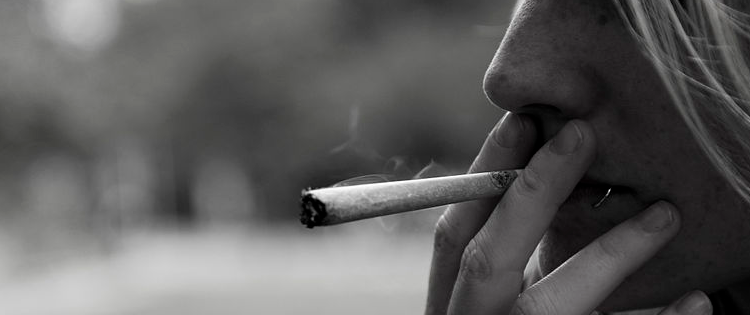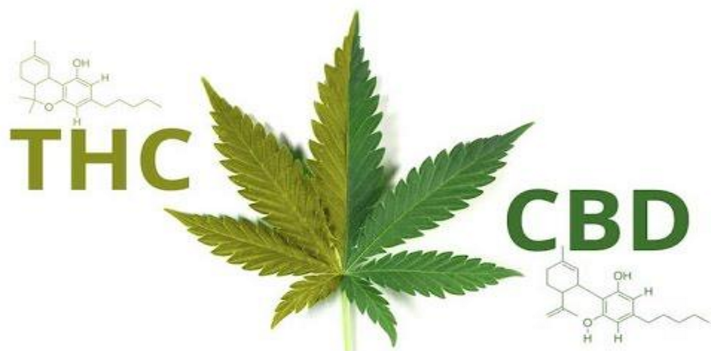Cancer is striking the American population in staggering numbers. In 2018, over 1.7 million new cases of cancer were reported and of those cases, over 600,000 people will die from the disease.
Advancements in technology and different forms of chemotherapy and radiation treatments are designed to offer cancer patients a cure and relief from their condition.
And while CBD can’t cure cancer, it may offer patients some relief from symptoms caused by both the disease itself and treatment side effects.
Here you’ll find information on how CBD and THC can relieve both cancer and chemotherapy symptoms and why the medical industry is becoming more open-minded about their use.

CBD as an Alternative Care Option
For some people, the thought of chemotherapy is equally as frightening as the cancer diagnosis itself. Chemotherapy side effects range from nausea and vomiting to hair loss and extreme fatigue.
CBD can offer those opposed to conventional chemotherapy treatments an alternative option. The use of CBD oil to improve the quality of life for cancer patients is controversial but practical for some.
Arguments in favor of CBD as a form of cancer treatment revolve around the drug’s ability to increase the likelihood of remission and eliminate malignant cell growth while protecting the patient’s immune system and reducing nausea. This is a viable option for those individuals opposed to pharmaceutical medicines that contain chemicals and other toxins.
Using CBD to treat cancer is a two-fold solution. While treating the cancer, CBD will also eliminate many symptoms and complications like chronic pain and may even improve appetite.
And while this method of cancer treatment is continually researched and evolving, it certainly peeks the interests of those opposed to chemotherapy.

How to Take CBD for Cancer
The way someone ingests CBD or THC affects how the human body breaks it down and uses it.
For example, smoking either substance enters the bloodstream and reaches the user’s brain rather quickly. When taken by mouth, it may take hours for users to feel the desired effects and is absorbed and processed by the liver. However, THC consumed by mouth remains in the system much longer than if its smoked.
It’s also important to note that the component proven to ease cancer treatment side effects and help reduce discomfort for cancer patients is actually THC, which is commonly found in marijuana.
While CBD does contain traces of THC, they’re minimal. In fact, most CBD contains only .3% THC or less, which is why it doesn’t cause any psychoactive side effects.
Learn about CBD, what CBD is and isn’t at this website.

Legal CBD Drugs for Cancer
The debate over whether or not CBD is legal in the United States is under constant debate and question.
Because CBD contains such small traces of THC, it’s legal in many states. Not to mention, local governments that recognize the many benefits that THC and CBD offer patients are legalizing it for medicinal use. But progress is being made and this is evident by the introduction of two federally approved medications that actually contain traces of THC – Nabilone and Dronabinol.
Nabilone is actually a synthetic cannabinoid that acts like THC and is taken orally to help quell nausea and vomiting. Dronabinol is also used to treat nausea and vomiting in cancer patients and contains a form of THC (delta-9-tetrahydrocannabinol). The introduction and approval of these two medications is just the beginning.
Several other medications are still in the works and being considered for legalization, including Nabiximols. This mouth spray is comprised of equal parts THC and CBD and may help ease pain in cancer patients. While Nabiximols is helping people in both Europe and Canada, it’s not yet approved for use in the United States.
If you want to learn more about CBD and THC and how they interact with our body watch Cannabinoid Clinician, Dr John Teh explaining them in great details in the below video:
What to Expect
While CBD offers many benefits for treating some forms of cancer and chemotherapy side effects, there are still things to consider before using it. First and foremost, check with your doctor or another medical professional. It’s important that they know and understand your wishes.

Marijuana and CBD use for treating medical conditions isn’t something new and your doctor can answer most of your questions and concerns. Depending on the state you live in, you’ll likely need their consent and a prescription to obtain the drugs.
You should also know how CBD might make you feel and verify that it won’t negatively interact or interfere with your chemotherapy or other treatment plans. If you’ve decided that CBD is the right path for you, here are a few side effects you may experience during your first few uses.
- Increased blood pressure
- Rapid heartbeat
- Dizziness/fainting
If you’re currently suffering from a mental illness, some forms of CBD or THC may worsen these conditions. The most common complication experienced by CBD users is an interaction with their current medications. It may actually increase the effects of certain sedatives including sleeping pills.
Most doctors will start patients on a very low dose of the drug and gradually increase it after seeing the effect it has both on your current condition and on improving your symptoms.
There’s no right or wrong answer when it comes to using CBD to help treat cancer or lessen the side effects of chemotherapy. The decision is ultimately up to the patient.
If you’re unsure of whether or not CBD is the right choice for you, or are considering its use in conjunction with traditional methods, speak to your doctor. You can discuss the benefits, risks, and any other reservations you might have.
- Why CBD Gifts Could Be the Perfect Present For Your Loved Ones - July 15, 2020
- Common Kratom Myths Debunked - July 14, 2020
- The Pros and Cons of Different CBD Extraction Methods - May 8, 2020


